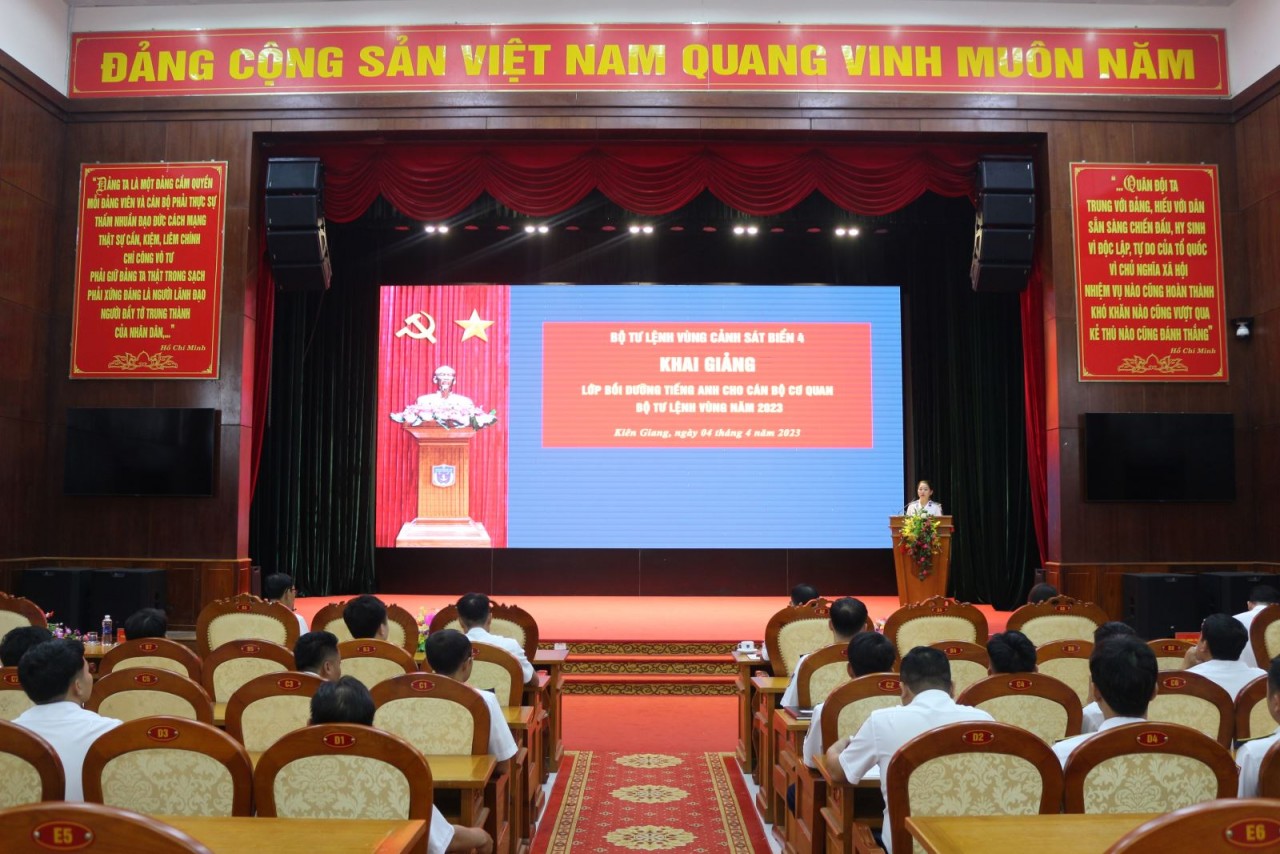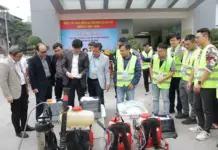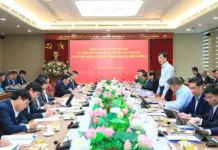Over the past period, the Coast Guard Command of Vietnam’s Navy Region 4 has been focusing on providing professional training for its officers and staff, including by organizing English training courses. This is in an effort to fulfill the requirements of Directive No. 10222/CT-BTL, dated August 11, 2020, issued by the Coast Guard Command on “Strengthening Foreign Language Learning in the Coast Guard to Adapt to the New Situation”.
According to Colonel Ngo Minh Tung, Deputy Commander of the Coast Guard Region 4, the English language training course is exceedingly important for improving the quality of training within the unit and improving the foreign language skills of its officials, meeting the requirements of the current situation.
 |
| Overview of the opening ceremony. (Photo: Thoi Dai) |
The content of the classes was diversified, including:
• Enhancing English skills for the Vietnam Coast Guard
• Training on international law and maritime security
• Learning about the latest technologies in the field of maritime safety and security
• Familiarizing with the international rules and regulations related to maritime safety and security
• Strengthening the understanding of international cooperation and collaboration
These classes have helped to improve the foreign language proficiency of the Vietnam Coast Guard officers, as well as to help them better understand the international maritime safety and security regulations. Furthermore, the knowledge gained from the classes has enabled them to better cooperate and collaborate with other countries in the field of maritime safety and security. The project has also helped to enhance the professional capacity of the Vietnam Coast Guard officers, in terms of being able to respond quickly and effectively to any maritime security incidents.
Foreign language skills of officials and officers are reviewed and classified in order to develop comprehensive plans and determine specific guidelines and orientations for more effective training. The quality of performing the task of patrolling, controlling, and maintaining law enforcement at sea has greatly increased. Additionally, the capability of managing, exploiting, and mastering modern weapons and technical equipment has been enhanced, thereby contributing to successfully protecting the sovereignty and enforcing the law, security, order, and safety on the sacred seas and islands of the Fatherland.
Colonel Ngo Minh Tung emphasized that for the training class to achieve its objectives and content, Party committees and commanders of agencies and units should pay close attention to and create favorable conditions in terms of time and assigned tasks for officers. Furthermore, they should have a comprehensive understanding of the role and importance of foreign language learning, in order to ensure that their subordinates adhere to training schedules and the efficiency of the courses.
Trainers must adhere to approved lesson plans and documents, and devote time to researching and developing teaching methods appropriate for the unit’s current working environment to guarantee the quality and effectiveness of their outcomes. In addition, trainers must promptly report, advise, and recommend to the Command’s Head any matters that fall outside of their authority.
Learners need to have a sense of responsibility, positivity, and self-discipline to studiously practice and fully absorb the contents of the training course. Furthermore, it is essential that participants strictly adhere to the discipline and regulations of the course. Upon completion, all participants will be awarded either an A2 or B1 certificate.
Workshop discusses preservation of heritage urban areas
NDO – An international workshop was held in Hoi An, Quang Nam province on June 14, to discuss the preservation of heritage urban areas.








